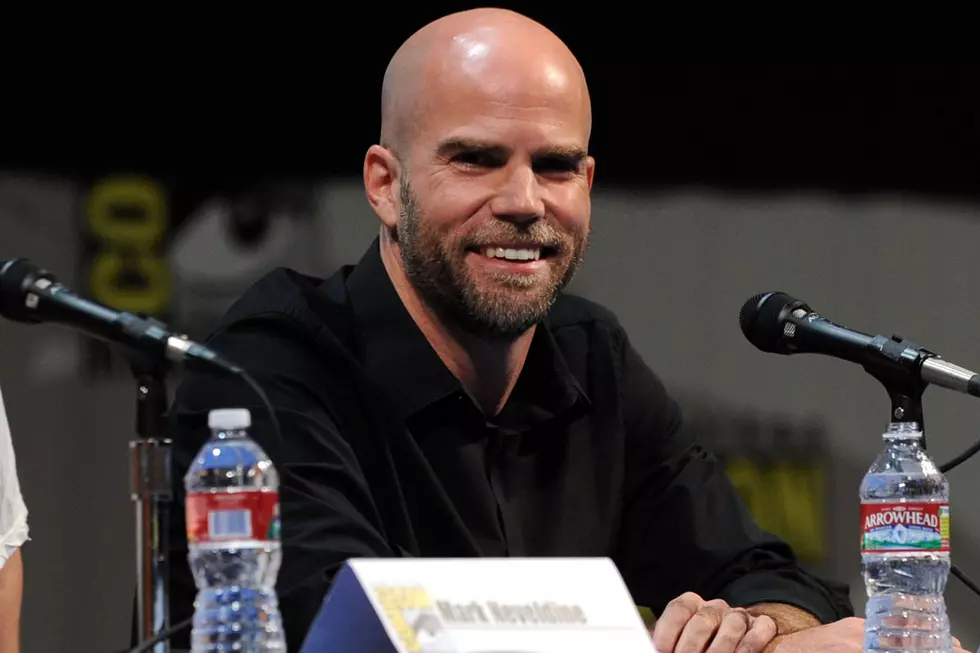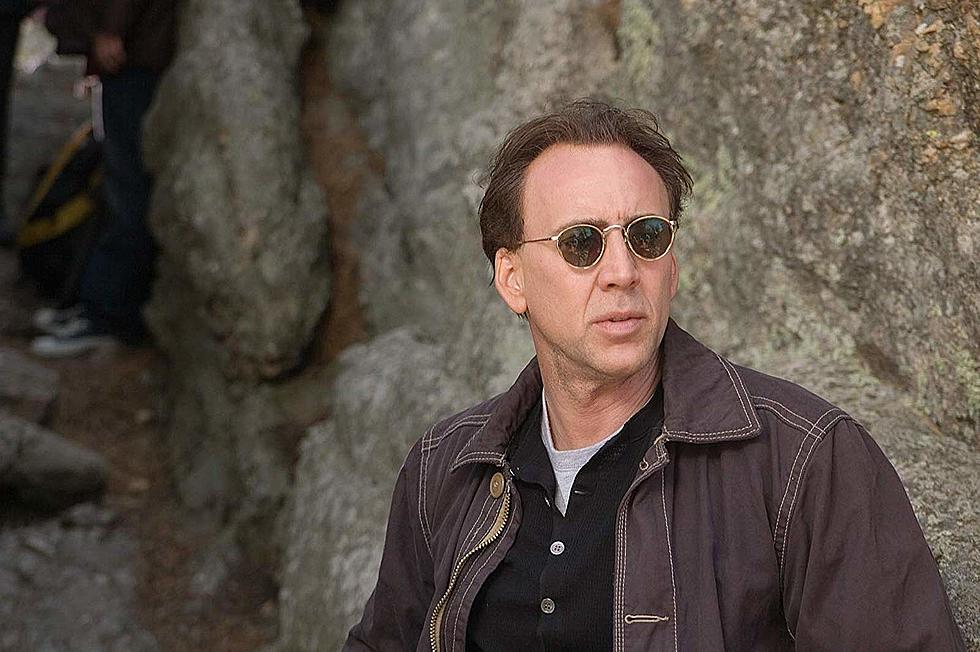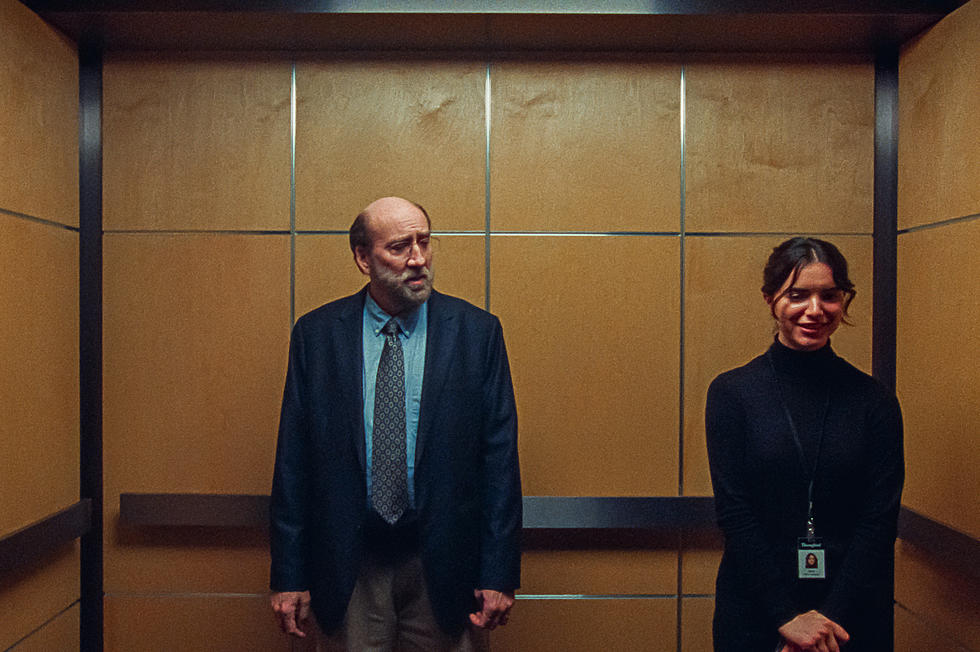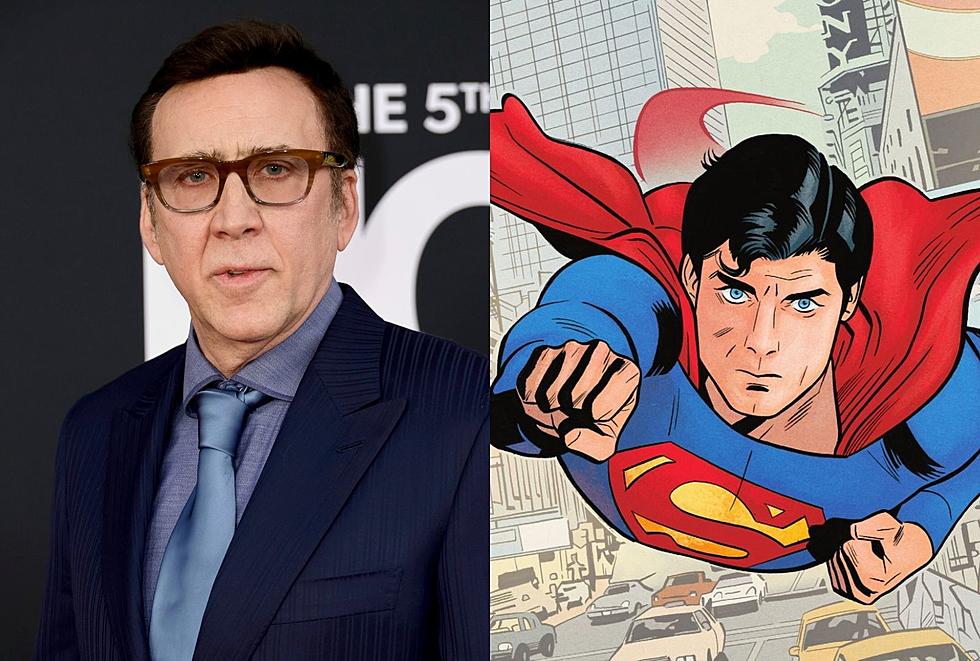
Brian Taylor on ‘Mom and Dad,’ Directing Nicolas Cage, and a Possible ‘Crank’ Spinoff
Brian Taylor has the best description of Nicolas Cage’s work I’d ever heard.
“Directing Nic Cage,” he told me, “the geekiest way I can describe it, it’s like being Cyclops [from X-Men]. He’s got that visor, because if he takes it off, the skyline will be cut down. That’s Nic. Nic is like Cyclops, and you’re the visor, letting it out in little pieces so that you don’t f—ing destroy people. And then, every now and then in those moments where he goes full werewolf, you just take the visor off.”
Taylor knows no-visor Nic Cage well. He directed him in Ghost Rider: Spirit of Vengence (you know, the film where Cage played a demon who pisses literal hellfire) and now in Mom and Dad, a darkly hilarious horror comedy about a mysterious illness that turns ordinary parents into sadistic murderers. The film, which Taylor wrote and directed, gives Cage one of his ultimate full-werewolf moments: Cage’s Brent unleashes a monologue about growing older and feeling uncool while he smashes a pool table with a sledgehammer and sings “The Hokey Pokey.”
Over the course of a long conversation at the Toronto International Film Festival, Taylor and I discussed that instant classic scene, and what it’s like to shape a Nic Cage performance. We also talked about the future (if there is going to be one) of his partnership with Mark Neveldine, his collaborator on numerous films including Ghost Rider and Gamer, and whether they might someday reunited for a third film in the beloved Crank series.
Where does this insane idea come from?
Well, I’m a parent.
I am too, actually.
Oh man. A boy?
I have a girl and another girl on the way.
That’s not so bad. Try a boy for six months. You don’t sleep. It was good training for this.
[laughs]
I say that kind of tongue and cheek, because you don’t hate your kids, you love your kids. But the subtext of the movie is about planned obsolescence. We’re literally put here for absolutely one reason and one reason only, which is to make them. And once they’re made, our purpose is to serve them. And all this other stuff we think we’re doing, making movies and writing articles and s—, all that stuff is not really our purpose. That’s just, like, hobbies.
It’s a really strange thing when you become a parent. On some level you’re like, “Wow, I’m over. I don’t matter other than to serve them.”
Right, you’re here to keep the species going.
And they don’t appreciate it at all. [laughs] They’re just like, “Yeah, of course. That’s your job!” So it’s kind of a raw deal when you think about it that way. That’s kind of the subtext. We’re all about our kids, we love our kids, but damn it! [laughs]
Did you write it with Nic Cage in mind?
No, but he’s the first guy I sent it to. For me in particular, he’s a real fun guy to work with. Because I’m tonally autistic.
You said something to that effect last night at the premiere. You claimed you don't know what tone means.
I don’t know what it means! I’m tonally autistic. To me, if, at the most horrific time, a joke happens, that’s good. I don’t modulate; I always go for it. I don’t know if it’s good or bad. It’s probably bad. But Nic’s the same way. So it’s like, wherever you need him to go, he’s willing to go there if people believe in it.
So the first question is “Nic read this and tell me if it touches you. If you get it,” because it’s a risky movie to do. The subject matter is kind of a third rail. If you don’t get the comedy, you’re like, “What the hell is the matter with these people?” And it’s a bit of a leap of faith. If you’re going to go there, you’ve got to be all in. And he came back and he’s like “I’m 200 percent all in.” Same with Selma [Blair, who plays Cage’s wife].
[Directing Nicolas Cage] is like directing the weather. He’s like Hurricane Jose. You just kind of take the appropriate steps to protect yourself and you hope that the devastation is not insurmountable. [The kid playing Cage’s son in Mom and Dad], little Zackary Arthur, who is a great young actor, he would literally look at me before some of those takes with fear in his eyes like “Am I going to be okay?” Really! I’m kind of a father figure on set, his dad’s not there, I’m sort of acting like dad while he’s acting, and he was looking at me like “Am I safe?” I told him “I don’t know. Let’s find out!”
So if we see fear in his eyes in some of those scenes, it's not acting.
Well great acting isn’t acting anyway. Which is something that’s amazing for that little guy to understand at such a young age. But yeah, in those moments, he’s f—ing pissing himself. It’s crazy.
When Cage said "I am 200 percent in," did you write anything specifically for him? Did you change the script?
We worked on some stuff together because the big moment, sort of like the soul of the movie, that’s supposed to come at you as a surprise when you least expect it, is the scene with the pool table. And it’s for both of the parents. In their own way, they are each laying it out there for you. Selma’s very much on book. “These are the words, I’m going to say these words as truthfully as I can, and as beautifully as I can,” which, I thought, she’s really good.
She’s awesome.
But Cage is like “Okay, so I have a few ideas.”
I bet he does. [laughs]
He came with a lot. He said, “I’m 53 years old, I get it. I want to just tell the truth. I don’t want to act, I just want to tell the truth.” So he came with a lot of ideas and some of the ideas were great and you hear them in there. And I don’t know, it may seem ridiculous given that the movie is pretty absurd in a lot of ways, but the first time he did that scene in rehearsal I teared up. I couldn’t stop myself. Because you could hear the real pain, you could hear the truth of it.
It’s an amazing scene. Was the sledgehammer and the singing and the pool table, was that one of the things he brought?
No, it was always the sledgehammer [in the script]. “Hokey Pokey” was him.
I probably should have guessed that.
[imitates Nicolas Cage] “I have this idea. I want to sing ‘Hokey Pokey’ in the middle of the scene.”
By the way, that song is not public domain, which I found out afterwards. We had to buy the “Hokey Pokey” for the movie. It was expensive, but it was worth it. What are we going to do, take that out?
No way.
One of his first things Nic wanted was to wear a curly wig for the movie, like Robert Reed in The Brady Bunch. And I explained to him, “I see where you are going to that,” because he’s channeling this retro Americana, the same way that he channeled Adam West in Kick-Ass. I get it. I get the irony of that. But I told him, “You need to make a turn. If you start out in that place, in that elevated place, then you have nowhere to go.” “Okay, you’re right, you’re right.” So sometimes he’d bring in an idea like that. But I want those ideas! Keep them coming. Because for every one of those that doesn’t make it, then you get the “Hokey Pokey.”
You could have gone in so many different directions from the premise. It starts off more like a zombie movie, in a way. And you settled on this unusual structure where the film starts bigger and then gets smaller and smaller in terms of the story. How did you arrive at that?
That’s an interesting question. First of all, Night of the Living Dead is a big influence in everything that I do. I think there is too much explanation and too many rules in movies. I don’t need to be explained and I don’t need the rules. Because in life you don’t really get explanations and rules very often. That’s the movie I want to see. Don’t worry about why, worry about getting the f— out of Dad’s way.
As far as it being big and then being small ... I don’t really know. Since you’re bringing up zombie movies, another movie that I thought did that really well was World War Z. It starts out huge and ends really small. I loved that. And it wasn’t by choice, by the way. They ran out of money. I’m glad they did, because it’s rare to see a summer blockbuster that doesn’t end with the world being destroyed. It’s nice to end in a little room with intimate characters. Maybe there’s a little bit of that in this? Night of The Living Dead, too; same thing. It starts in the outside world and gets smaller and smaller until you’re literally in a basement, just like in this. So I’m sure the current of Night of The Living Dead runs through this in a lot of ways.
How much time did you have to shoot it? Compared to some of the other things you did, was this a small movie?
Oh yeah. It was really small. It was low budget. It was $4 million, 24 days. It was pretty quick.
It still has the energy of the Neveldine/Taylor movies. Is that hard to replicate on a lower budget or are you guys doing low-budget tricks on those anyway?
The whole point of what we used to do was low budget anyway. The thing about this movie was it doesn’t want to be that for the whole movie. It wants to have it in little spurts. The Crank movies were designed to be a satire of disposable ADD culture. All that matters is right now, right now, right now, and if I don’t get stimulated right now, it’s irrelevant. That was the subtext of Crank. Stimulate, stimulate, stimulate.
This is a whole different thing. I think there’s a tendency to look at one movie that somebody does and think that’s all they do. But in the case of the Cranks, they’ve got to understand that was very deliberate. The structure of those movies and the pace of those movies was a really deliberate thing. I think that’s why those movies are fun. They’re not just an exercise in sort of throwing as much on the screen as you can. There was sort of a method to the madness.
The two of them are really different, too.
Which one is your favorite?
Depends on the day. I love them both.
I’m a Crank 2 guy.
What I love about Crank 2 is you found away to replicate the structure of the first movie, but change the gag. So the first movie is all about shots of adrenaline and it’s a crazy action movie. And then in the second one, he needs electric shocks, and the whole movie is about “shocking” images and content.
That’s the metaphor.
Speaking of Crank, I’ve heard rumblings through the years about a posssible third movie. Is it now probably never going to happen? Is there still hope?
Who knows. There’s some talk of doing a spinoff movie. Like a Crank extended universe. [laughs] There’s been some talk of that and a little bit of movement. But I’m not going to announce anything until it happens. One thing at a time. Right now I’m working on a TV show based on a graphic novel by Grant Morrison.
I noticed the Grant Morrison cameo in [Mom and Dad]. I wondered how he wound up in there.
We’re doing this show called Happy!, based on his graphic novel. The funny thing is I had known Grant Morrison a little bit because he was a Crank fan. He said so in interviews. So when I read this graphic novel, it’s almost like a homage to Crank. It’s got a guy in a hospital gown, covered in blood, running from hospitals, drinking coffee, running from cops, and I’m like, “This is awesome!” Strictly by a serendipitous coincidence in the universe I ended up working on it with him. We’re shooting it right now, we’re mid-season. It’ll be the last weekend in November the pilot is going to air. It’s bats— crazy. That’s my year, I’m all in on this thing.
Is the Neveldine/Taylor partnership officially over?
No. We’re still bros, man. We talk all the time. After the whole Ghost Rider thing, we both had a little bit of fatigue with it. Let’s do some other stuff and just see where it takes us. We’re like Outkast. You never know when there’s going to be another Outkast record.
When you say there was fatigue from Ghost Rider, was it just that it was a hard movie to make?
It was a really hard movie to make. We were under the gun with that one and it was just rough. It was kind of a movie that struggled right out of the gate for a lot of reasons. We worked really hard on it, and at the end of the day, there’s some good things about that movie. The movie was a financial success. I thought we did some really fantastic things with the actual Ghost Rider himself, but it was rough man. You just come out of an experience like that and go “You know what? Let’s just take a break. Take a breath. Watch our kids grow up a little bit, let’s just relax a little bit, do some writing and just kind of like see where life takes us for a little while.”
The nice part about your Ghost Rider, especially now that there are so many superhero movies, and I say this as a fan of a lot of those movies, is that they’re so similar. And your Ghost Rider is this weird crazy thing, which is nice.
It always wanted to be rated R. The funny thing about that movie, if we’re gonna talk about that, David Goyer is the credited writer on that movie. That ain’t his script. He wrote a Ghost Rider script, I think, 10 years earlier. Before the first movie came out. It was a rated R, American gothic, gritty, scary, brutally violent version of Ghost Rider. And it was awesome. If we had done that script, it would have been nobody’s business. People would still talk about that movie. Problem is, it went through a decade of development. Draft after draft until it became something else.
Yeah, that doesn’t sound like the movie you made at all. But you got to work with Cage, and wouldn’t have gotten to make Mom and Dad without that, I’d assume.
No, it was phenomenal and an incredible experience. We learned a lot. We met Cage. It was worth it.
What’s the status of Mom and Dad? As soon as I tweeted about the pool table scene last night people wanted to know when they could see it.
I don’t have an answer for that. That’s kind of why we’re here. Let’s see what this thing can be. You never know if it’s going to play until you put it in front of people. It played great, and that’s really exciting. But I’d be lying if I told you I walked into that room knowing how it would play. When you’re making unusual movies that aren’t like other movies, it’s hard to know. You hope people will like it, you’re proud of it, but it’s different.
How concerned were you about an eventual rating? Because you’re dealing with parents trying to kill their kids. That’s a touchy subject. Do you ever wonder “How much of this man bludgeoning this teenager can I get away with?”
I still don’t know. [laughs] It was a hard one. If it’s a traditional violent movie, you know how far you can go. Infinitely far, really. There’s almost nothing you can’t do, as long as it’s grownups and grownups. With this thing it was very much a gut feeling thing.
You actually found something that’s still kind of taboo, which is hard to do these days.
There were times watching last night, I gotta tell you, when I was like “Maybe we didn’t go far enough. We should have killed more kids there.”
More From ScreenCrush









